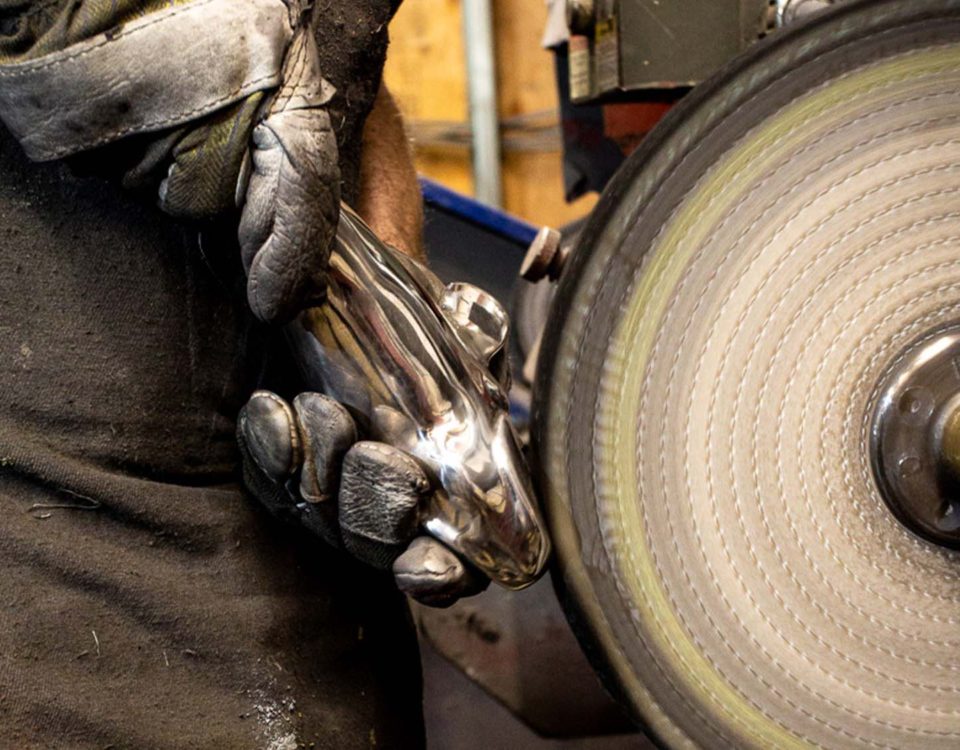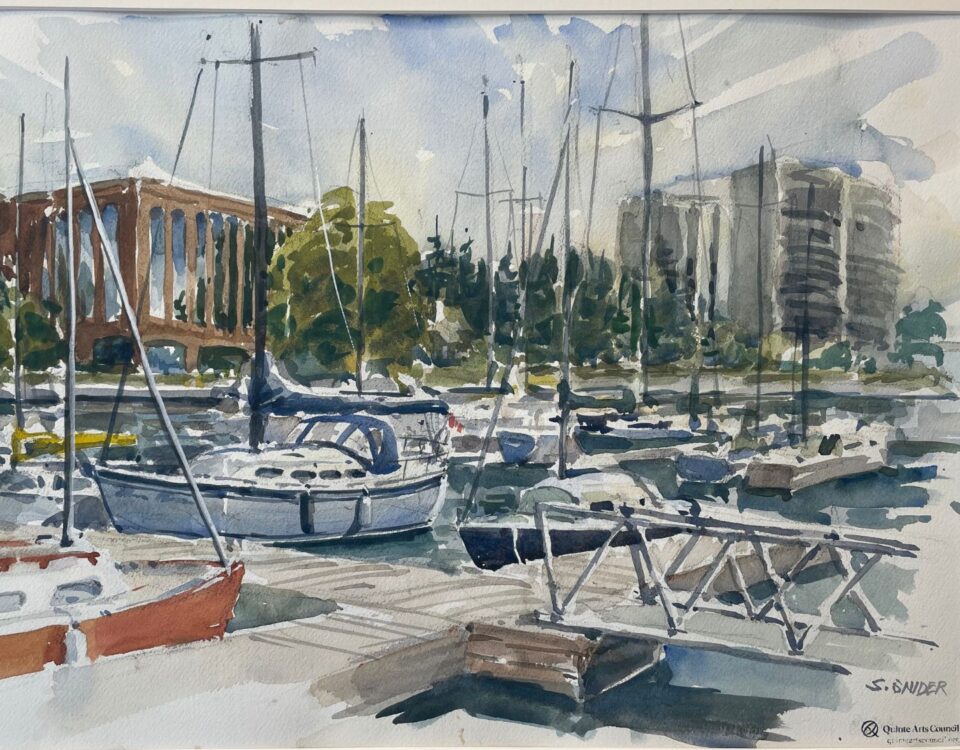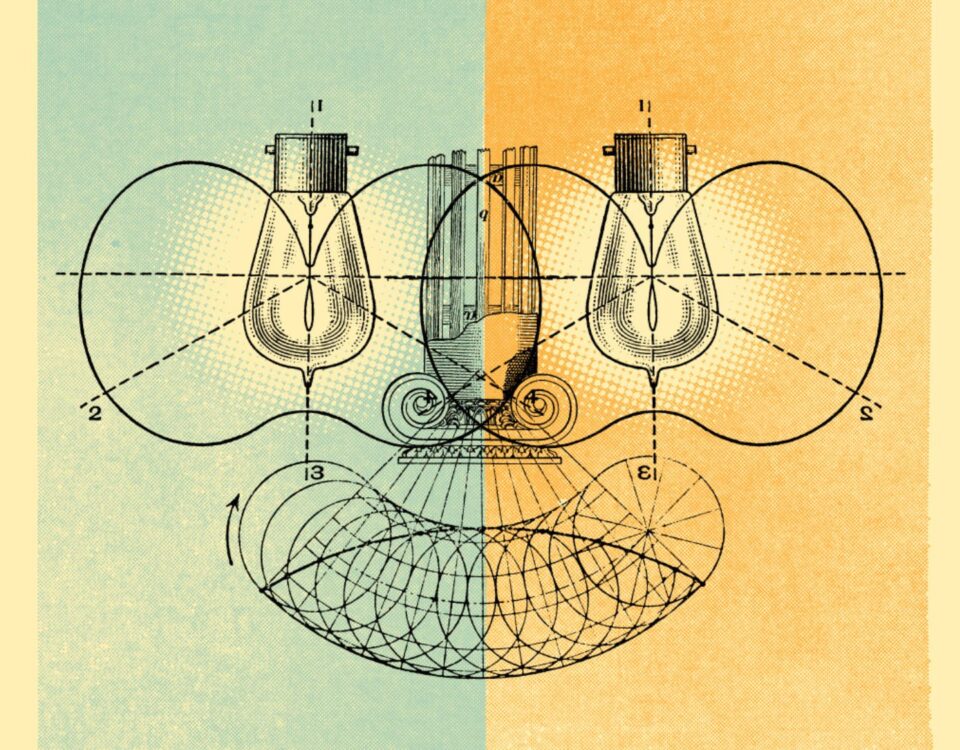
Research Casting International (RCI) is a 34-year-old Trenton business that has made a name for itself as a premier global preserver and manufacturer of museum artifacts and exhibits. Their clientele sounds like a “who’s who” of the museum world: the Smithsonian National Museum of Natural History, The Royal Ontario Museum (ROM) and the Natural History Museum in London, England, to name a few.
Museum exhibit work continues to be the main focus of RCI’s business, according to general manager Matt Fair: “Traditionally, it was cast dinosaurs, but since probably 2005, it has really started to shift towards doing fossil mounts. We go in and do complete restorations of entire collections.”
This summer, a new business focus has emerged. With the acquisition of aluminum casting equipment and related staff from a foundry in Brighton, RCI has launched “RCI Studios.” RCI’s world-class foundry can create resin, bronze and now aluminum castings, offering a local option for artists and galleries looking to recreate pieces in these materials.
“There are two different approaches,” explains Fair. “If they’re going to enlarge it or reduce it, we’ll do a 3D scan of it to create a model. We then carve it on our CNC (laser cutting) machine if it’s really big, or if it’s smaller, we can print it in our 3D printers (using plastic or plaster).” The second option is traditional molding of the sculpture for reproduction in bronze or aluminum.
Artists can also have their work cast by RCI Studios in glass fibre, reinforced concrete or composites, epoxy, polyester, or polyurethane.
One of the new entity’s first jobs has been to produce thousands of aluminum sculptures for various clients including the ROM for its whale exhibit that opened in mid-July. You can find these RCI Studios creations for sale in the ROM gift shop.
Interestingly, you’ll also find original whale skeletons in the ROM that were articulated at RCI in Trenton. The RCI team has collected approximately 11 whales for the museum. Their skeletons are removed and cleaned on-site at RCI then reassembled for mounting at the ROM.
When traditional molding is used for an artist’s sculpture, RCI Studios will take a room temperature vulcanized silicone mold, put a parting wall on it, paint half, take the parting wall off, then paint the other half with a separator between the two layers of rubber. Next, they will make a hard mold (“mother mold”) that holds the form/shape of the piece, put the rubber in and do a cast of that. Says Fair, “We can do that in a composite or, if we’re doing bronze, we would create a wax that would go into a ceramic shell to make a mold. We burn the wax out, then the ceramic shell is put in a kiln and heated to about 1700 degrees Fahrenheit. We melt our bronze in the furnace, pour that into the ceramic shell. Then we break the ceramic shell off once it cools and out comes the bronze piece for finishing.”
It’s not surprising that a collaboration with community artists is RCI’s latest initiative, given that a large number of the over 40 employees have artistic training and experience. A former Fine Arts student himself, Fair happened to be attending another artist’s exhibit and took the opportunity to ask the attendees (some of whom were QAC members) if there would be any interest in accessing a local foundry; the response was unanimously positive.
RCI’s foundry has actually been part of the company since the early 2000s and was originally used to create bronzes for museums. The foundry was shut down around 2014 to make space for a big contract with the Smithsonian. While the newly acquired aluminum casting equipment was being installed, the original bronze foundry was re-installed.
If the output of RCI Studios is anything like RCI as a whole, we can look forward to seeing some very creative results.


